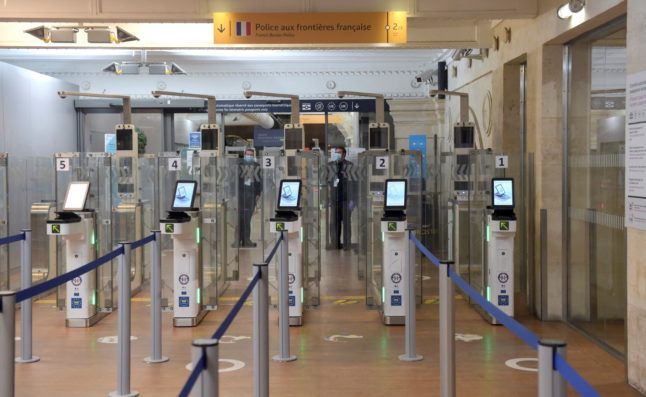It’s often hard to tell good financial advice from bad – let’s face it, it’s all very complicated and most of us are not as financially savvy as we’d like to think and the warning signs are not always obvious.
For most of us, pensions are something we pay into, without actually thinking too hard about what we’re paying into and whether it’s enough to see us through what we hope will be many happy autumn years.
Many foreigners living in France report receiving dozens of cold calls from supposed financial experts, and Brits are particularly targeted because of different rules for UK pensioners who are living outside the UK.
Those transferring pensions from the UK to another country will not be eligible for compensation or help from a UK-based body such as Financial Conduct Authority (FCA) or the Financial Ombudsman.
Protect yourself
In short, British pensioners living in Europe are not protected by UK regulation if they take their pensions out of the UK.
The Pensions Scams Industry Group (PSIG) – a voluntary body set up in the UK to combat pension scams through the publication of good practice in due diligence for trustees, providers and administrators – said that key signs to watch out for are:
- The person or company recommending that you transfer is not authorised to do so (by FCA);
- You are offered a financial incentive to make the transfer;
- The person encouraging the transfer is persistent and pressures you to act quickly;
- The initial approach about transferring was unsolicited (a cold call, for example);
- You believe you are transferring to an employer’s scheme but you have no employment link to that employer;
- You are transferring to an overseas scheme, but don’t live in that country;
- The scheme will invest in high risk, unregulated or complex investments, often a single type (like forestry, hotels, overseas land or cryptocurrency);
- You are promised very high returns on the investments;
- The fees you will pay as part of the transfer are unclear or layered, meaning several people taking their cut or commission;
- If it looks too good to be true, it probably is – walk away.
“In the UK, the Financial Conduct Authority (FCA) supervises the financial advice industry tightly,” Tom Goold, founder of EU financial adviers Valiant Wealth, told The Local.
“However, Britons living abroad are vulnerable to advisers acting outside UK regulation allowing them to get away with selling unsuitable products loaded with expensive commissions.
“In recent years the most common example is Brits being persuaded into transferring their pensions to QROPS in jurisdictions such as Malta or Gibraltar.”
Rules for expats
About 150,000 transfers – worth an average of £120,000 each – have been made since 2006, when the UK changed its rules to allow non-residents, such as Britons living in France, to transfer their UK pensions to a third country.
Goold said he believed “99 percent” of those transfers were unnecessary.
“They have typically involved investing via an expensive insurance bond which pays the adviser up to eight percent as an up-front commission,” he said. “The money held inside the bond is then commonly invested into expensive funds which, again, pay generous up-front commissions as high as five percent.”
He said, however, it was wrong to dismiss these schemes as scams as they are not illegal.
“Usually these are legitimate schemes and registered correctly – but simply mis-sold,” he said.
“It’s often hard to know that you are receiving bad advice as the warning signs are not obvious and advisers will make up a host of convincing reasons to justify a transfer.”
The initialisation QROPS often pops up in discussions about pensions with people who have moved from one country to another. It stands for ‘Qualifying Recognised Overseas Pension Schemes’. UK pensions can be transferred to schemes in a third country that are listed as QROPS on an official HMRC list.
Inclusion on the list does not indicate HMRC approval.
Goold said that only a small number of pension holders would benefit from making such a transfer: “An overseas transfer should only be considered by individuals concerned about their Lifetime Allowance (LTA) which is an extra tax applied on pensions above £1,077,000.
“Anyone with a pension of significantly less than this and unlikely to reach this level in the future really does not need to allow their pension to leave the UK under any circumstances.”
He added: “A big misselling practice is the unnecessary use of an insurance bond within a QROPS. This serves no structural purpose and is really only there to pay the adviser a big upfront commission.
“The FCA has banned the use of insurance bonds in pensions in the UK but they cannot extend this to QROPS which fall outside UK regulation.”
Know who pays
Like the PSIG, Goold advises individuals to be wary of cold calls. And he said how advisers are paid for their services would offer a strong hint over where their priorities lie.
“It is important to ask as many questions as possible about fees, surrender penalties – and understanding exactly how the adviser is remunerated that will tell you whether or not you are being badly advised,” he said.
“In the UK this level of transparency is mandatory but offshore advisers could use smoke and mirrors to cover up any commissions they receive and convince clients they are getting a good deal.”
His advice? You get what you pay for – so be prepared to pay a fair fee for complex financial advice.
“People should look for properly regulated fee-based advisers who are remunerated by their clients and not by providers.
“Such advisers typically charge a fair upfront fee based on advice, work carried out and the implementation of a solution and then an ongoing fee for advice, management and service.
“Good advisers will charge what is fair and be willing to discuss it openly with the client – just as you would for other services in life. Under this model the adviser is committed to making the long-term relationship work as opposed to a commission-based model most commonly seen in pension transfers where the adviser can squeeze as much as 12 percent commission on day one and then move on to look for their next sale.”



 Please whitelist us to continue reading.
Please whitelist us to continue reading.
Member comments